The fashion industry is the second largest polluting industry on the planet, while projecting beauty and glamour on the exterior. Fast fashion, overconsumption and unethical means of production are some of the dirty secrets of the uber stylish high street brands. In this article, I try and understand what conscious fashion is and chat up a designer who is doing some wonderful work in the area.
Clothing made by holistic and transparent processes from crop to shop, using ethical practices is the true essence of conscious fashion. This also means that there no environmental costs that is transferred to the future generations. Conscious fashion combines high quality clothing and design with ethically sourced and produced materials.
Upasana Conscious Fashion Hub is a platform which lends itself to the practice and dialogue of conscious fashion, which means they know exactly who grew the organic cotton that went into a dress and are on a first-name basis with the woman who stitched it together and put on the buttons. They have shown that it is possible to track and monitor one’s supply chain and care for the people involved while still being a successful business.
I caught up with Upasana’s founder Uma Prajapati on my recent trip to Auroville. Here’s an excerpt from our coversation about conscious and ethical fashion:
JB: Uma, tell us about yourself, how did Auroville and more specifically Upasana happen?
Uma:I graduated from NIFT Delhi in 1994 as a fashion designer. I came to Auroville in 1996 for a design project for 2 weeks and fell in love with this place and its vision. I stayed on , it’s 21 years now, never looked back or missed Delhi. I worked in a garment unit Auromode for one and half years inside Auroville. Two years later I started Upasana with the vision of bringing India through textile to Auroville.
JB: What makes Upasana different (what is the brand philosophy)?
Uma: At Upasana clothing is not about just body but “Draping the soul”. At Upasana, we believe in creating design for change, a sustainable future through fashion, creating clothes that go beyond beauty and vanity.
At the core of Upasana lies it’s fundamental ethos of using fashion as a tool, to solve social and environmental issues. Upasana has always questioned what fashion can do for society, since its inception.
Being a 3000 billion dollar industry today, I believe fashion has great power , we should give it a chance. At Upasana fashion is to serve community maker and wearer both. Celebrating beauty in it true sense.
JB: How difficult is it to market your brand when every other designer these days is jumping the “sustainable clothing” bandwagon?
Uma: More the better, we need many more designers to work on this issue for this to become main stream, for me sustainable fashion is not a marketing idea but truly caring for people and the planet. Upasana has inspired many young designers and students to take up this cause and we are happy to see things moving in right direction.
JB: Tell us about your new collections and some initiatives you’ve undertaken (like Tsunamika)
Uma: Upasana has moved into organic cotton since seven years, now we are moving into Desi cotton and medicinal textile line. New collection focuses on these two elements.
——-
Tsunamika – A living symbol
The project started as a trauma counselling effort for fisherwomen in February 2005. The raw material came from industrial waste and more than 600 women were taught to make these tiny dolls called ‘Tsunamika’. ‘Tsunamika’ runs on ‘Gift Economy’ – it is never sold, but given. The project runs on community support where people take dolls and contribute as per their capacity. They are gifts of love and friendship. Today, more than five million dolls are made and sent to over 80 countries. Tsunamika project has been given the ‘Awardof Excellence’ by the Government of India and a special recognition by UNESCO.
Small Steps – For a big change
‘Small Steps’ is a green campaign which was launched as a solution to the environmental problem of plastic carry bags. We aim at telling people – ‘Carry your own shopping bags’ and encourage them to avoid the usage of plastic bags. ‘Small Steps’, however, is more than just a bag. Women from more than 14 villages work to make the ‘Small Steps’ bags. ‘Small Steps’ believes – solutions to our problems lie in every little step we take everyday.
Varanasi Weavers – Continuing the thread of tradition
Upasana began to work with Varanasi Weavers Community in 2006 and later went on to introduce a brand called ’Varanasi Weavers.’ This project encouraged the weavers from this community to continue what they were good in – weaving. Upasana involves itself with the community with social intervention, design, communication solutions and marketing. This project has been granted special recognition by the UNESCO.
JB: Wow, that was great Uma. Thank you for this eye opening dialogue. Hope more and more of us move to conscious and ethical fashion in the coming years.
Credits:
Pics: Priyadarshini Ravich
Outfit & Location: Upasana

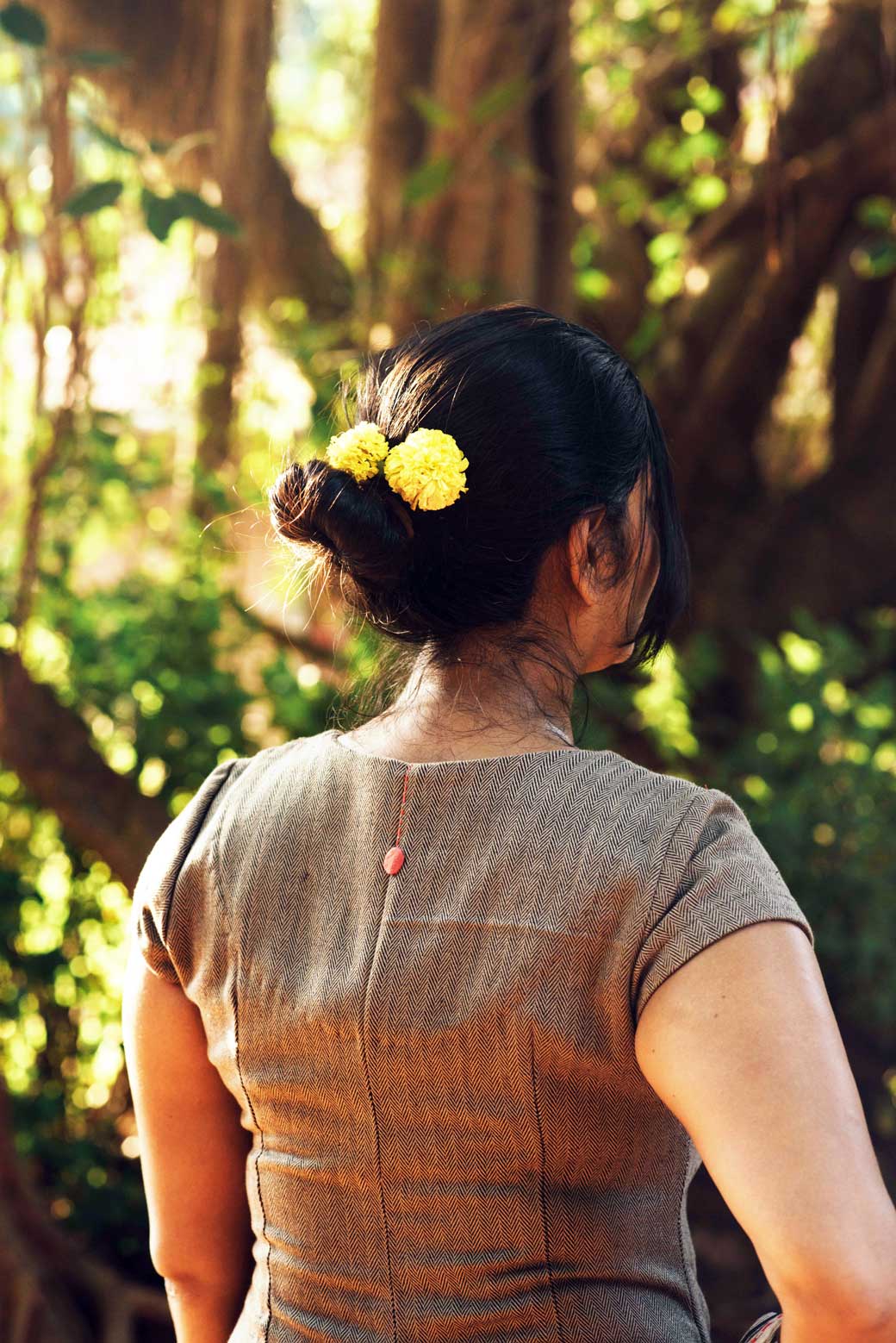
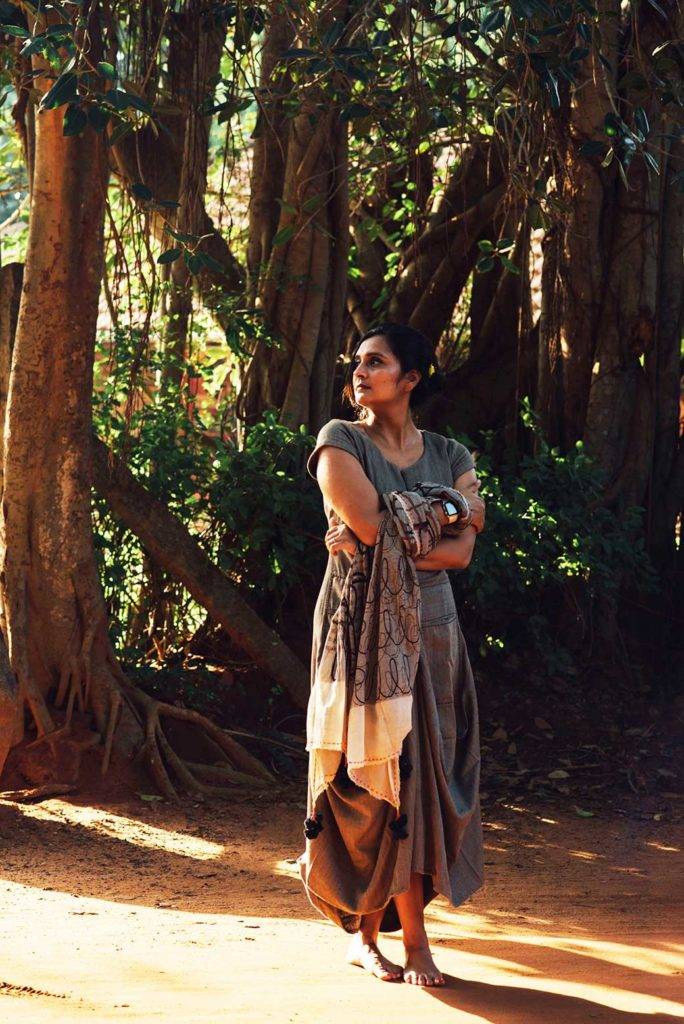
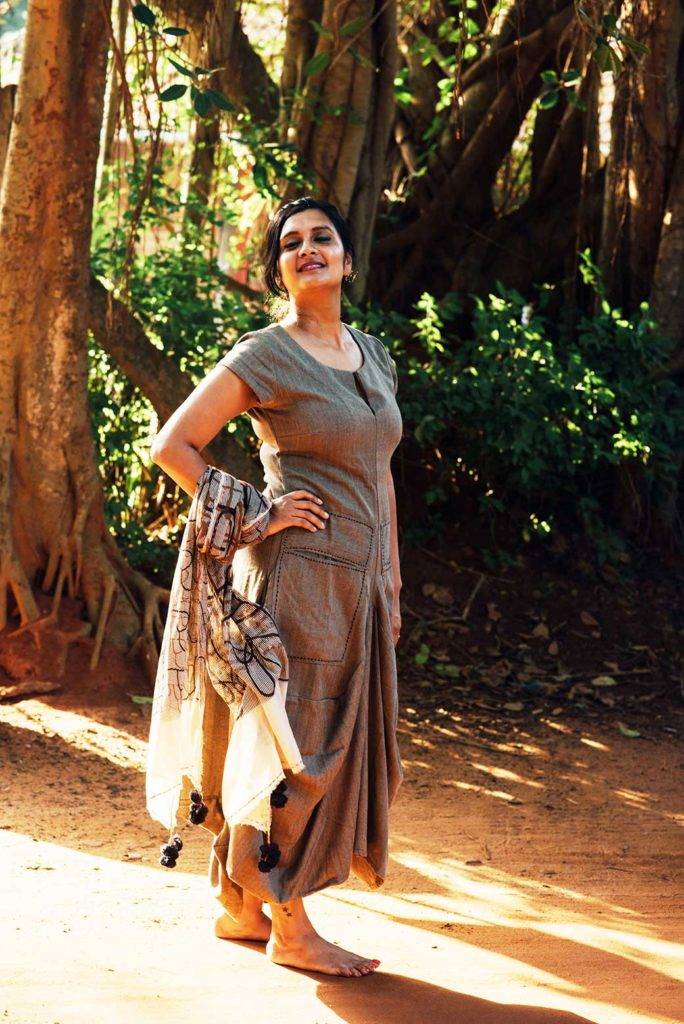
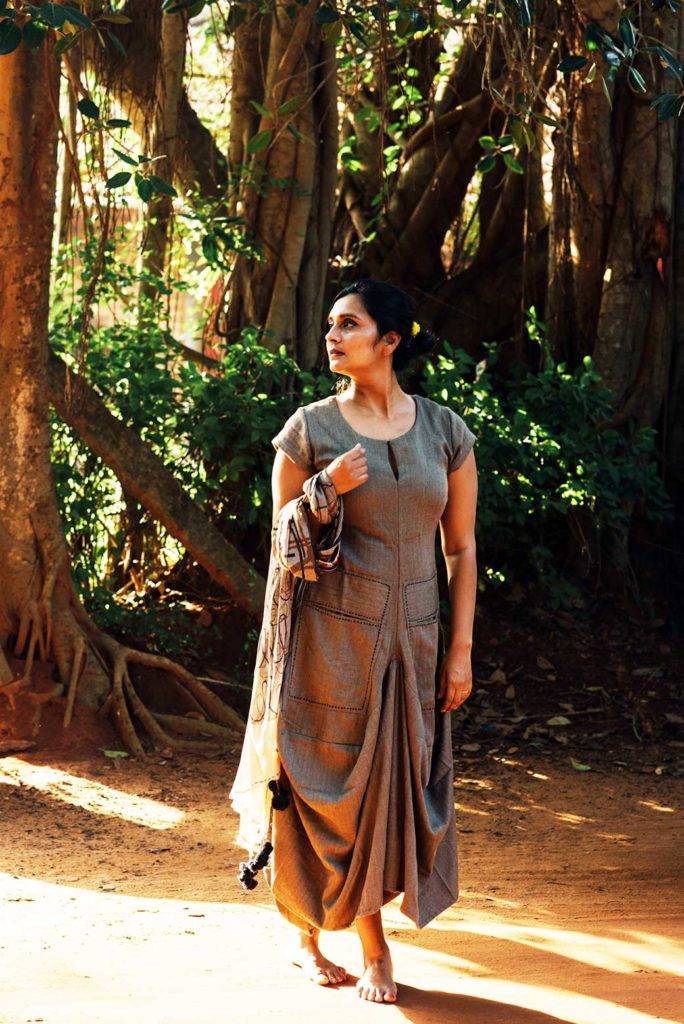
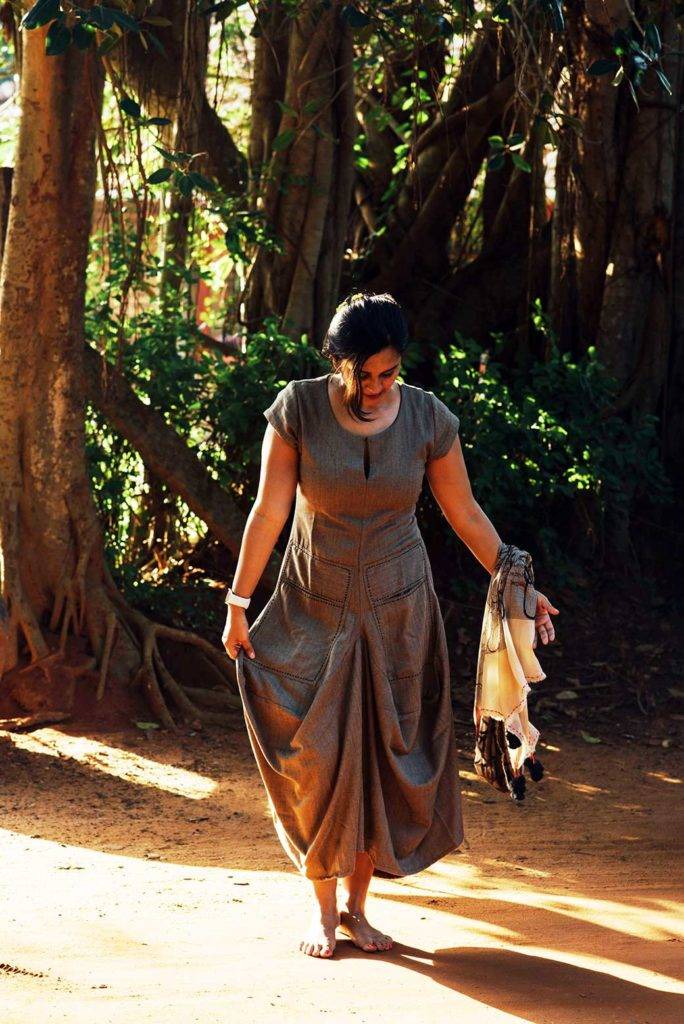
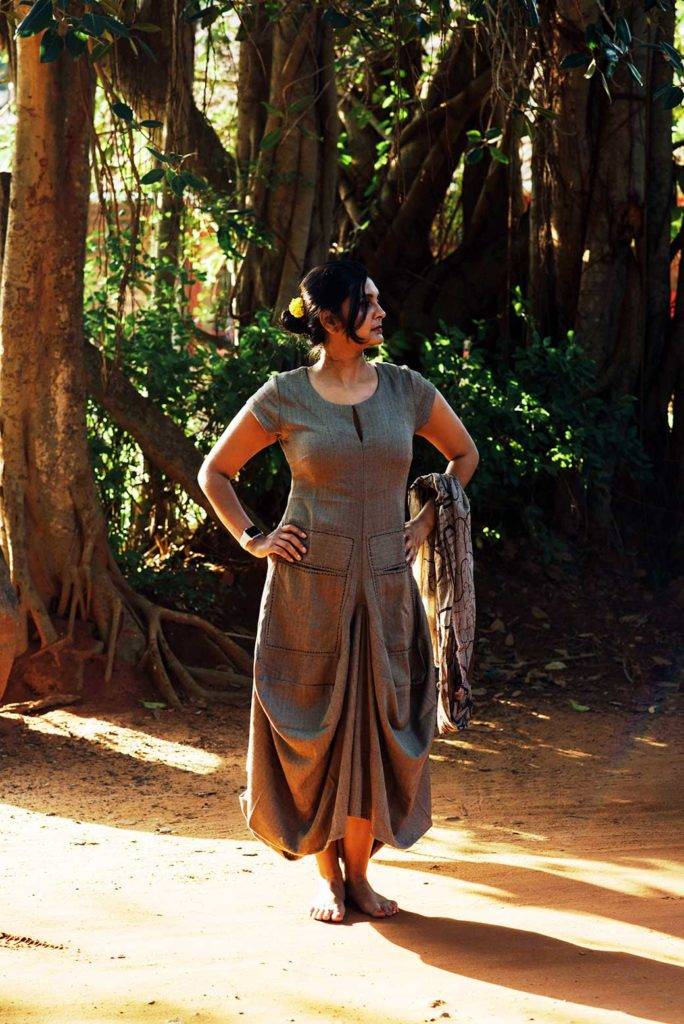
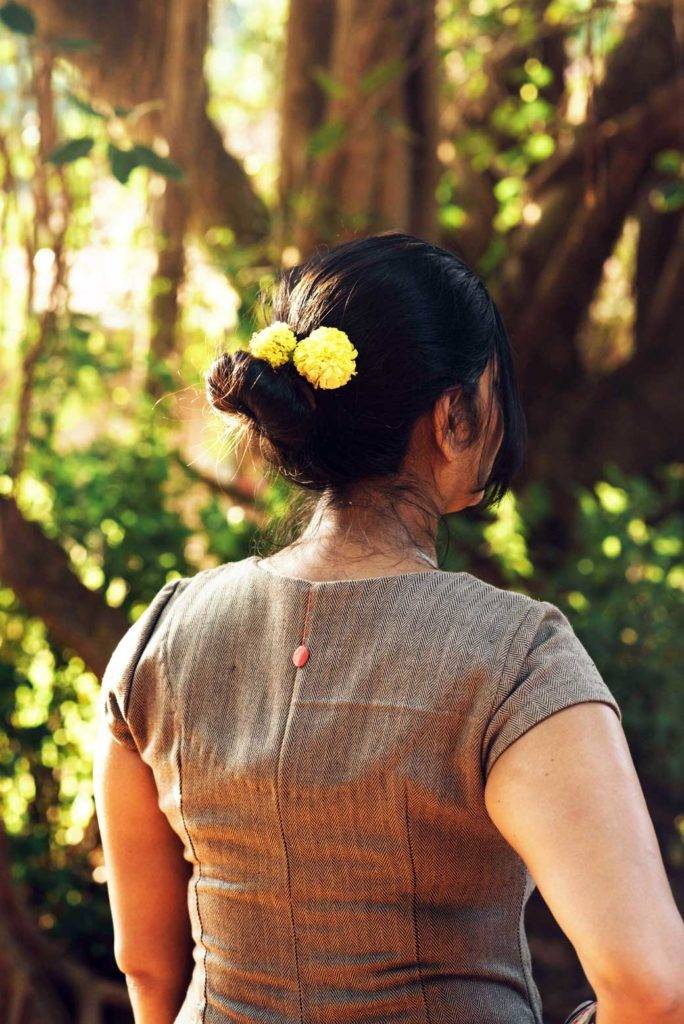
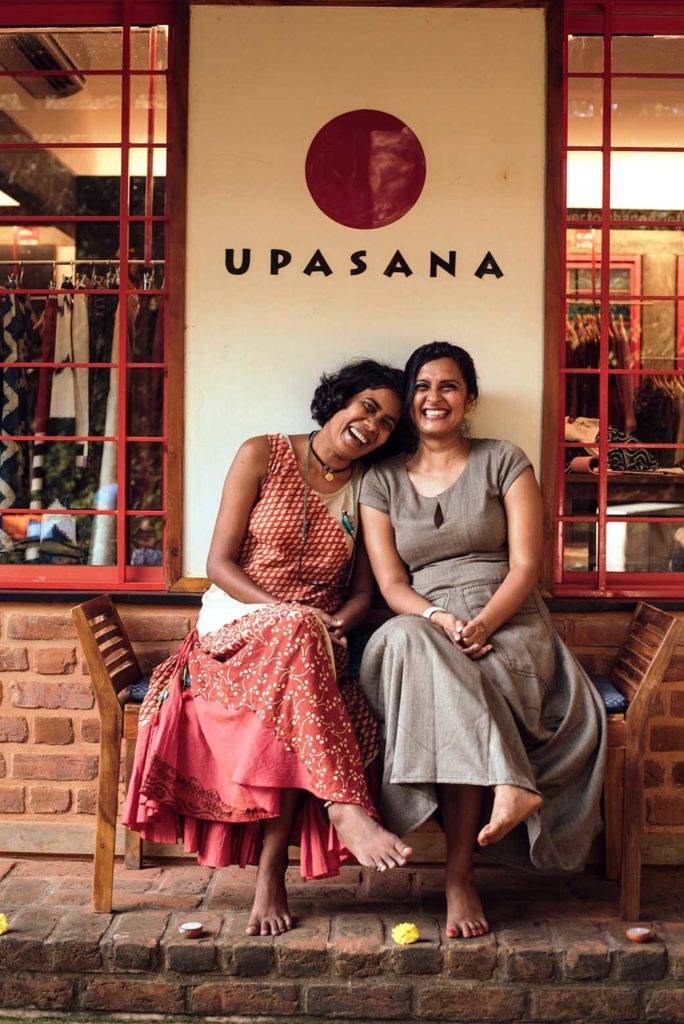



No Comments